If you’ve ever found yourself asking “why do I get hot when I sleep?”, you’re not alone. Being a hot sleeper is a common struggle that can leave you tossing, turning, and waking up drenched in night sweats.
The good news? There are simple, effective hot sleeper solutions that can help you stay cool and comfortable all night long. With the right environment, bedding, and habits, you can transform restless nights into restorative sleep.
What Is a Hot Sleeper?
A hot sleeper is someone who consistently feels too warm at night, often waking up sweaty, restless, or kicking off the covers. This happens when your body generates or traps more heat than it can release.
Hot sleepers may notice issues like damp sheets, disrupted sleep, or discomfort under heavy bedding.
On the other hand, cold sleepers often pile on layers because they struggle to stay warm, even in moderate conditions.
Knowing which type you are is the first step in choosing the right bedding, fabrics, and sleep environment.
Why Do Some People Sleep Hot While Others Sleep Cold?
Not everyone’s body handles temperature the same way. Some people naturally generate or retain more heat, while others struggle to stay warm.
Factors like metabolism, hormones, body composition, and even room setup explain why one partner may be tossing off blankets while the other pulls them tighter.
In short, hot sleepers overheat because they can’t cool down, while cold sleepers stay chilly because they can’t hold warmth.
Why Do You Get Hot at Night?
Feeling warm at night isn’t always the same as waking up drenched in sweat.
Overheating can stem from a variety of triggers that make the body hold on to more heat than it should:
-
Metabolic regulation: Some people are naturally warm sleepers, with higher metabolic activity that produces more body heat.
-
Hormonal fluctuations: Menopause, pregnancy, and thyroid imbalances can raise baseline body temperature, leaving you warmer at night.
-
Dietary factors: Eating foods that cause night sweats like spicy dishes, caffeine, or alcohol - too close to bedtime forces the body to work harder and raises heat.
-
Environmental influences: Poor air circulation, high humidity, or a bedroom temperature above 19°C make it difficult to cool down naturally.
-
Bedding and materials: Heavy comforters, synthetic hot bedding, and dense memory foam mattresses trap heat against your body.
👉 Hot sleeping doesn’t always mean sweating. It often begins as heat buildup that prevents your body from fully relaxing.
Hot Sleepers and Night Sweats
For many, the challenge goes beyond just feeling warm. It’s waking up in a sweat-soaked bed. Night sweats can disrupt sleep cycles, lead to dehydration, and even trigger anxiety about going to bed.
Common Causes of Night Sweats in Hot Sleepers
-
Hormonal changes: Menopause, thyroid conditions, or low testosterone.
-
Medications: Some antidepressants and fever reducers.
-
Dietary triggers: Alcohol, sugar, and spicy foods are well-known foods that cause night sweats.
-
Stress & anxiety: Elevated cortisol levels can increase nighttime body temperature.
If night sweats are frequent or severe, it’s worth consulting a professional.
You can also explore night sweats in children and adults as well as a focused look at night sweats in men and practical ways to reduce them.
👉 Unlike simply “sleeping hot,” night sweats represent a full sweat response that leaves bedding damp and sleep disrupted.
4 Effective Solutions for Hot Sleepers
1. Optimize Your Bedroom Setup
Many of the original tips in this guide emphasized cooling your environment, and with good reason. A few small tweaks can transform your nights:
-
Keep your bedroom temperature between 16–19°C.
-
Run a fan or air conditioning for air circulation.
-
Use blackout curtains to keep the sun from heating up your room.
-
If you live in a humid climate, add a dehumidifier to support temperature regulation.
-
Position your bed near windows to create a natural cross-breeze.
Even small steps, like adjusting airflow or learning how to cool down a room in summer, can make your sleep environment feel instantly lighter.
2. Upgrade to Cooling Bedding
Your bedding plays a huge role in whether you sleep hot or cool.
-
Choose breathable cooling sheets made from natural fibers that wick away moisture.
-
Opt for lightweight fabrics that help regulate temperature during night sweats, such as crisp organic cotton or eucalyptus.
-
Layer with a light blanket or a eucalyptus duvet cover that adds comfort without trapping heat.
-
Select a comforter with natural fiber filling instead of synthetics to improve breathability.
-
Add a cooling mattress topper or bamboo mattress protector to reduce trapped body heat.
-
Use a pillow designed for airflow to disperse heat from the head and neck for balanced cooling.
These are the foundation of a true cooling sleep environment.
3. Cool Down Your Body Before Bed
Your body’s temperature naturally drops before sleep, but stress, diet, and environment can interfere. Help it along with simple rituals.
-
Take a cooling shower before bed.
-
Use a cold washcloth on your pulse points.
-
Wear lightweight sleepwear made of natural fibers.
-
Avoid foods that cause night sweats late in the evening.
-
If you’re wondering “how to cool down in bed,” try placing a chilled water bottle near your feet under the covers.
These steps not only cool you physically but also calm your nervous system, making it easier to drift into deep sleep.
4. Lifestyle Adjustments That Help
Small daily changes can prevent overheating from becoming a nightly issue.
-
Create a calming pre-sleep routine that reduces stress.
-
Stay hydrated, but avoid alcohol and caffeine before bed.
-
If overheating is persistent, consult a doctor about possible health conditions.
Fabric Choices for Cooling Sleep
Not all fabrics are created equal when it comes to cooling sleep. Some trap heat and moisture, while others allow airflow and wick away sweat.
Natural Fabrics for Hot Sleepers
-
Eucalyptus (Tencel Lyocell): Naturally moisture-wicking, breathable, and silky soft. Perfect for hot sleepers. For more, see how cooling sheets regulate body temperature.
-
Linen: Excellent airflow and durability, though slightly textured.
-
Organic cotton percale: Crisp and breathable, ideal for best sheets for night sweats.
-
Bamboo viscose: Soft and cooling, with a lightweight drape.
Synthetic Fabrics and Blends
-
Polyester & microfiber: Affordable but often trap heat and create hot bedding.
-
Performance blends: Some offer advanced cooling technology, but not all are sustainable.
Choosing the Best Fabric
For long-lasting comfort, natural fibers consistently outperform synthetics.
These fibers also make a difference beyond your bedroom. Choosing responsibly sourced bedding helps cut down on plastics and petroleum-based fabrics that often end up as waste.
At Olive + Crate, sustainability is part of every decision we make—so the same fabrics that keep you cool through the night are also gentler on the planet.
Quick Hacks for Hot Sleepers
If you’re looking for immediate relief, here are a few fast fixes:
-
Put your sheets that stay cool in the freezer for 10 minutes before bed.
-
Switch out heavy bedding for layers you can adjust.
-
Try water- or air-based products for hot sleepers as a targeted best bed cooling system.
-
Position fans for maximum air circulation.
Summary: FAQs About Hot Sleeper Solutions
What is the best bed cooling system?
It depends on your needs. For many, a mattress topper with gel-infused foam is enough. For more advanced solutions, water-cooled or air-based systems provide precision temperature regulation.
What is the best comforter for hot sleepers?
The best comforter for hot sleepers is lightweight and made with breathable bedding materials such as bamboo, eucalyptus, or organic cotton.
What are the best sheets for night sweats?
Best sheets for night sweats include eucalyptus Tencel, bamboo, or crisp cotton percale. They are breathable and moisture-wicking, keeping you cool and dry.
What is the best duvet for night sweats?
The best duvet for night sweats is lightweight, breathable, and made with natural fiber fillings such as eucalyptus, wool, or bamboo. Unlike heavy synthetic duvets that trap heat, these options allow airflow, regulate body temperature, and help hot sleepers stay comfortable without overheating.
Which foods cause night sweats?
Common foods that cause night sweats include spicy dishes, processed sugars, caffeine, and alcohol. Eating these before bed can elevate your core temperature.
Final Thoughts
If you’re tired of sleeping hot and searching for how to stop overheating at night, the solution is often a mix of environment, bedding, and lifestyle. Simple shifts, from cooling sheets to smarter evening habits, can transform overheated nights into deep, refreshing rest.


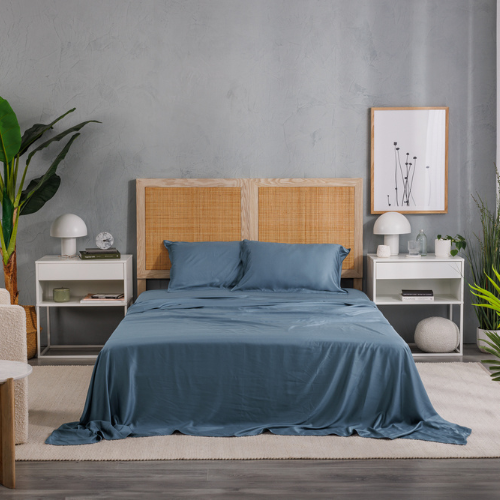
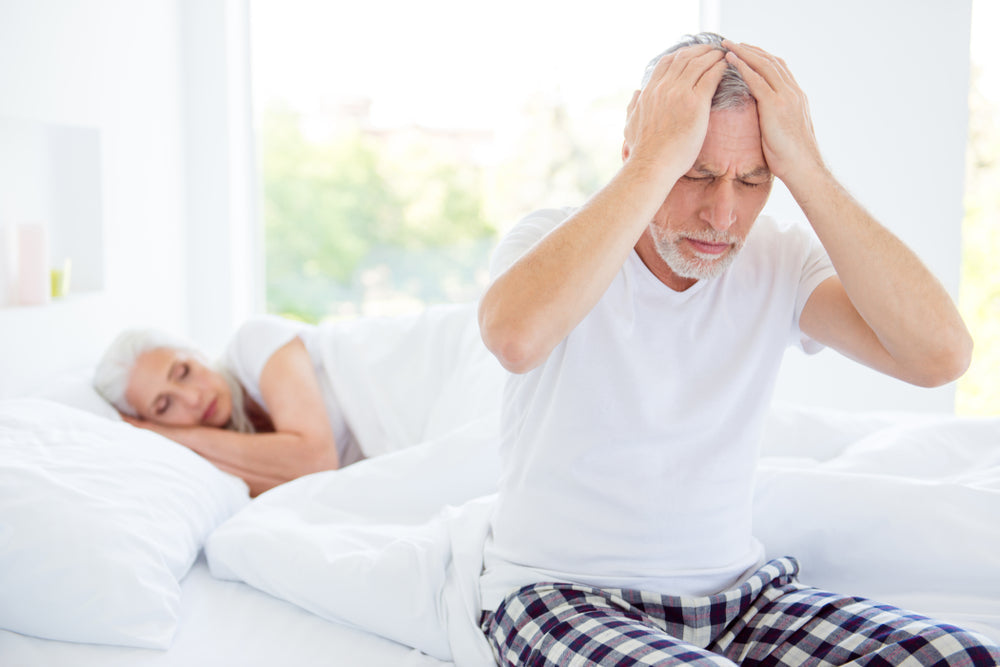

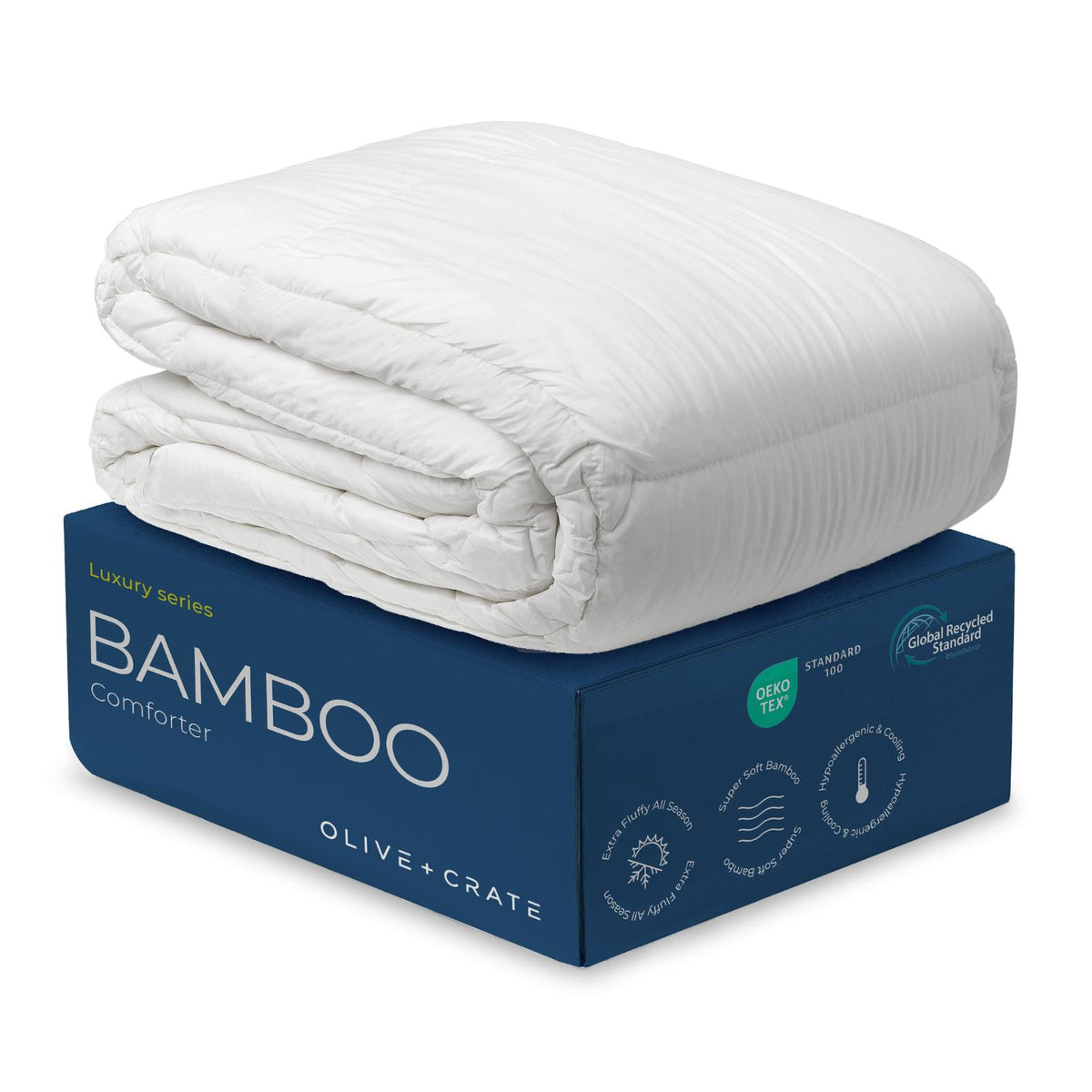

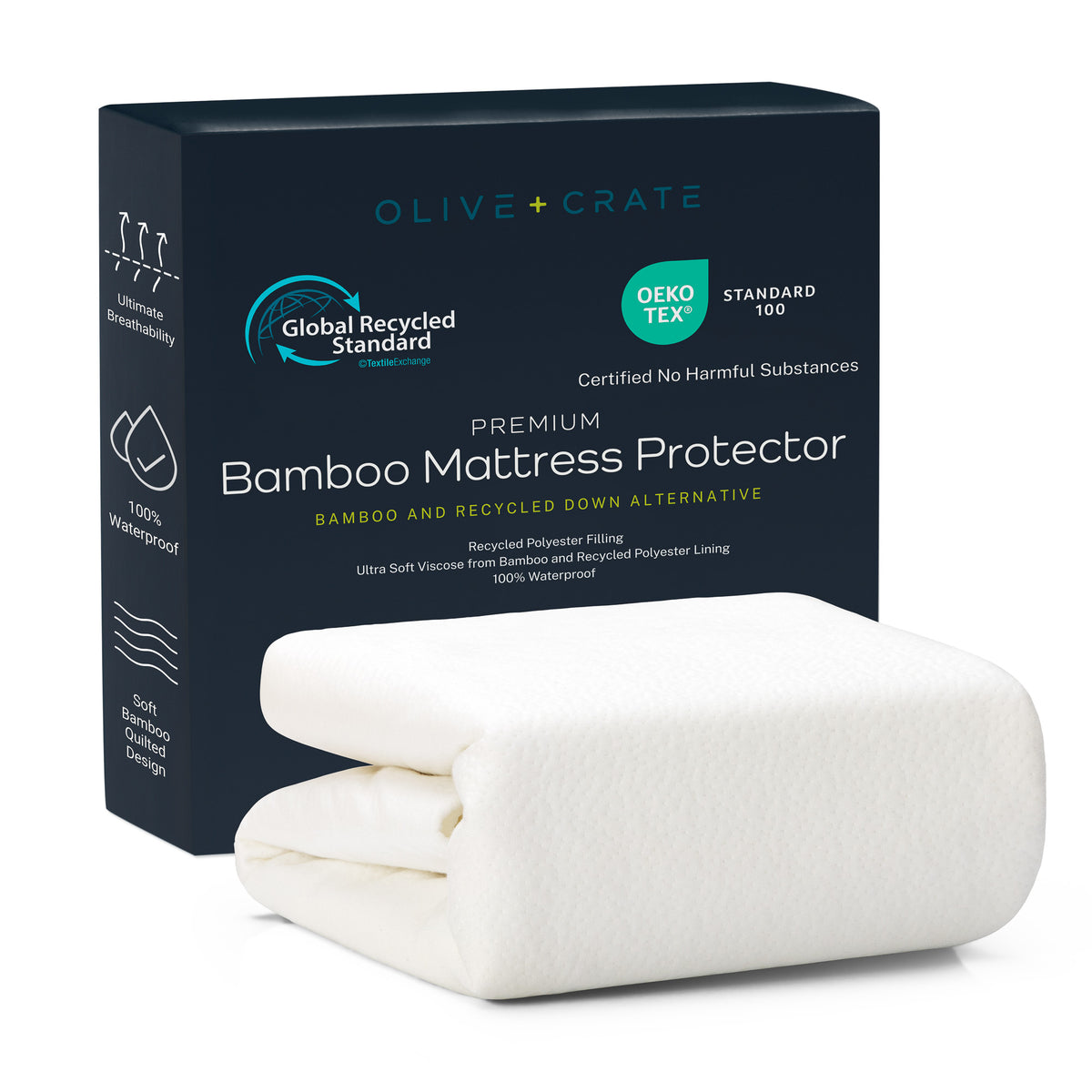

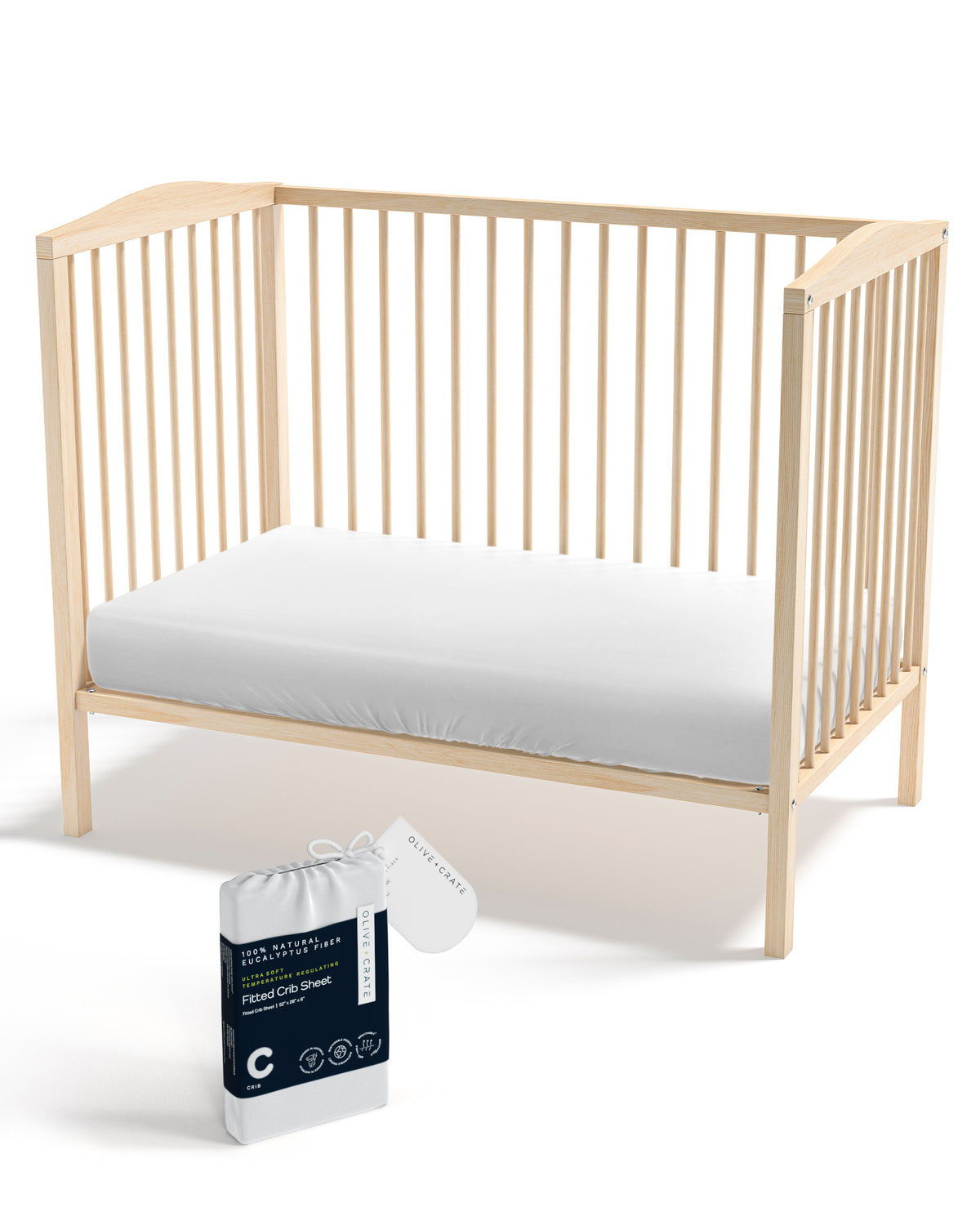
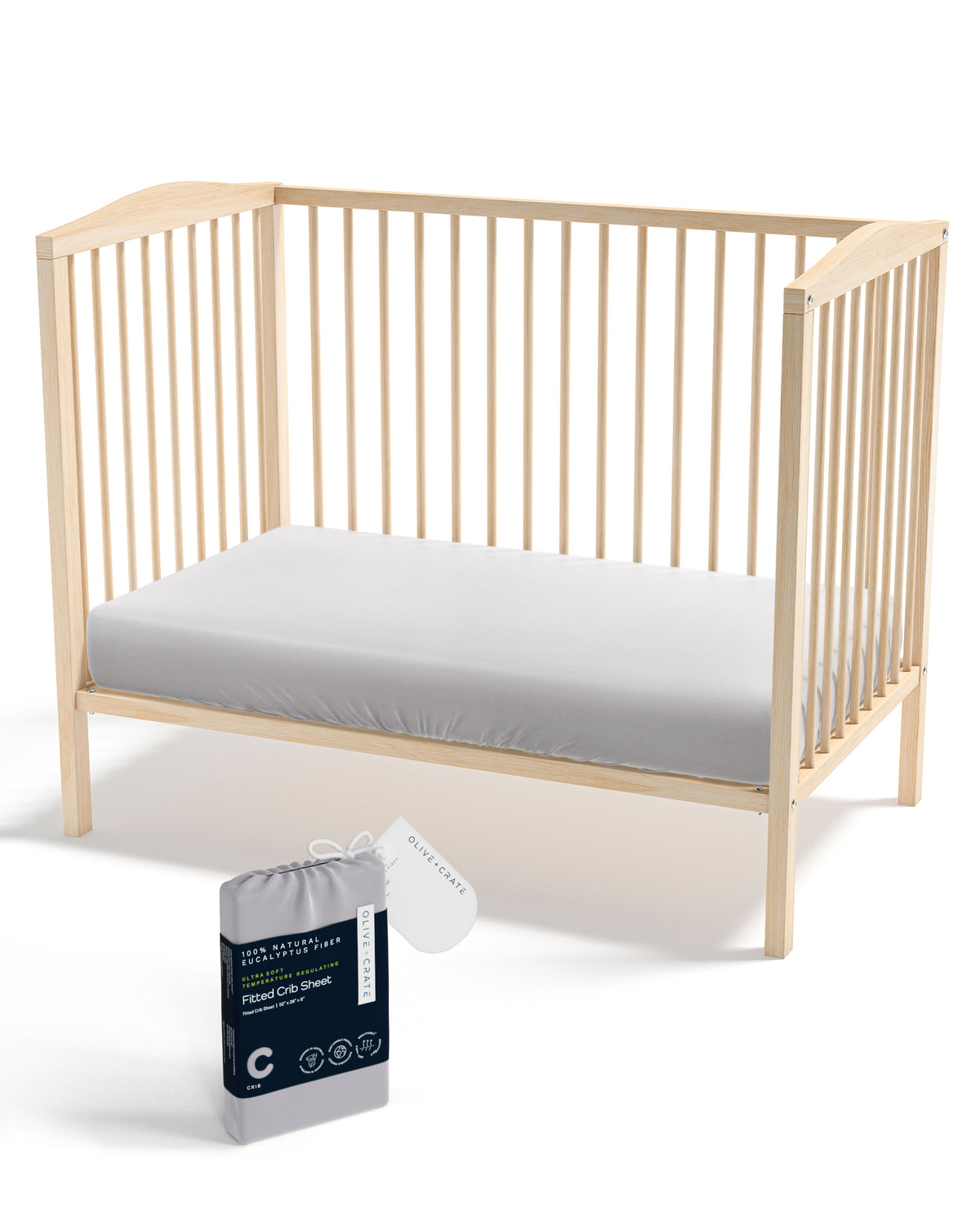
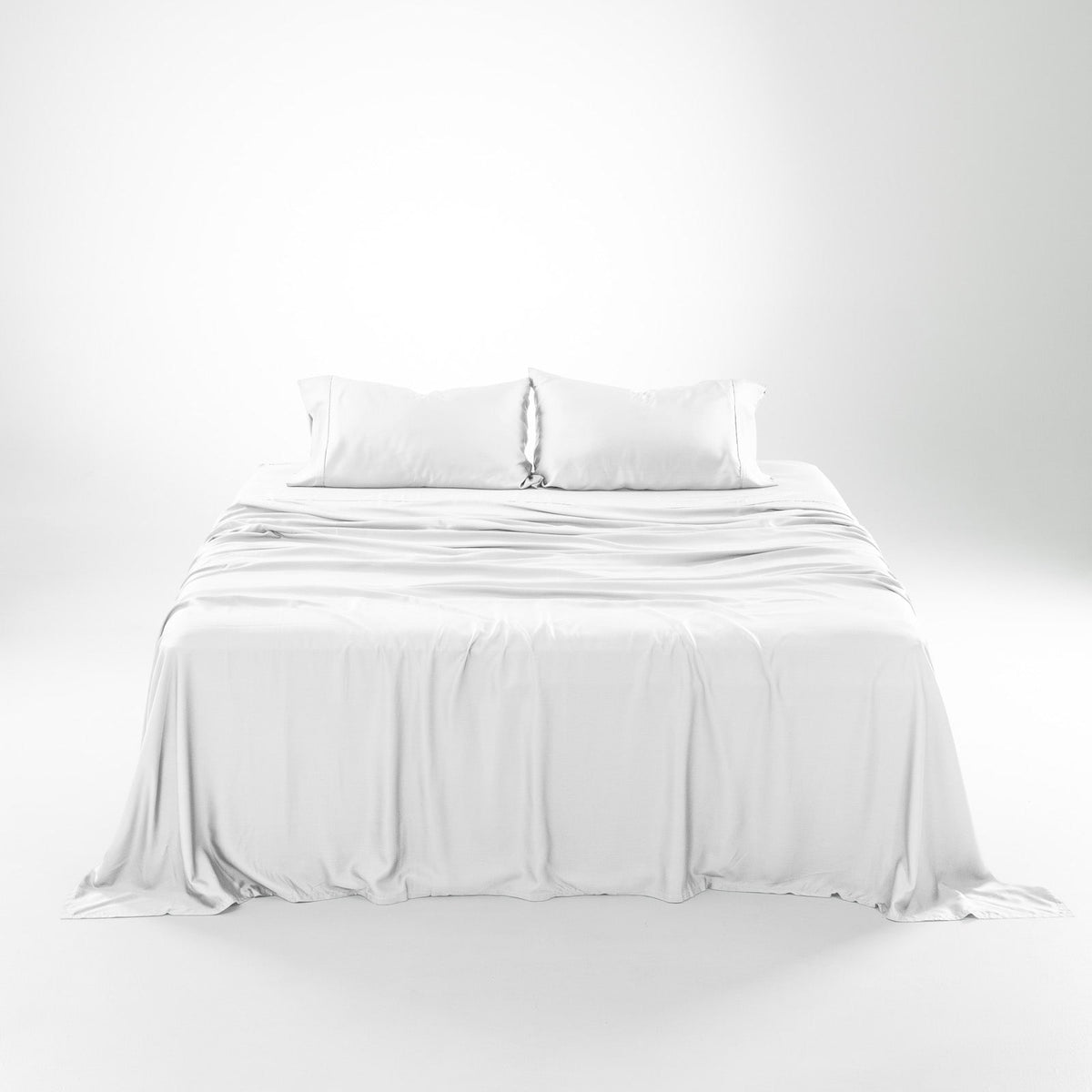
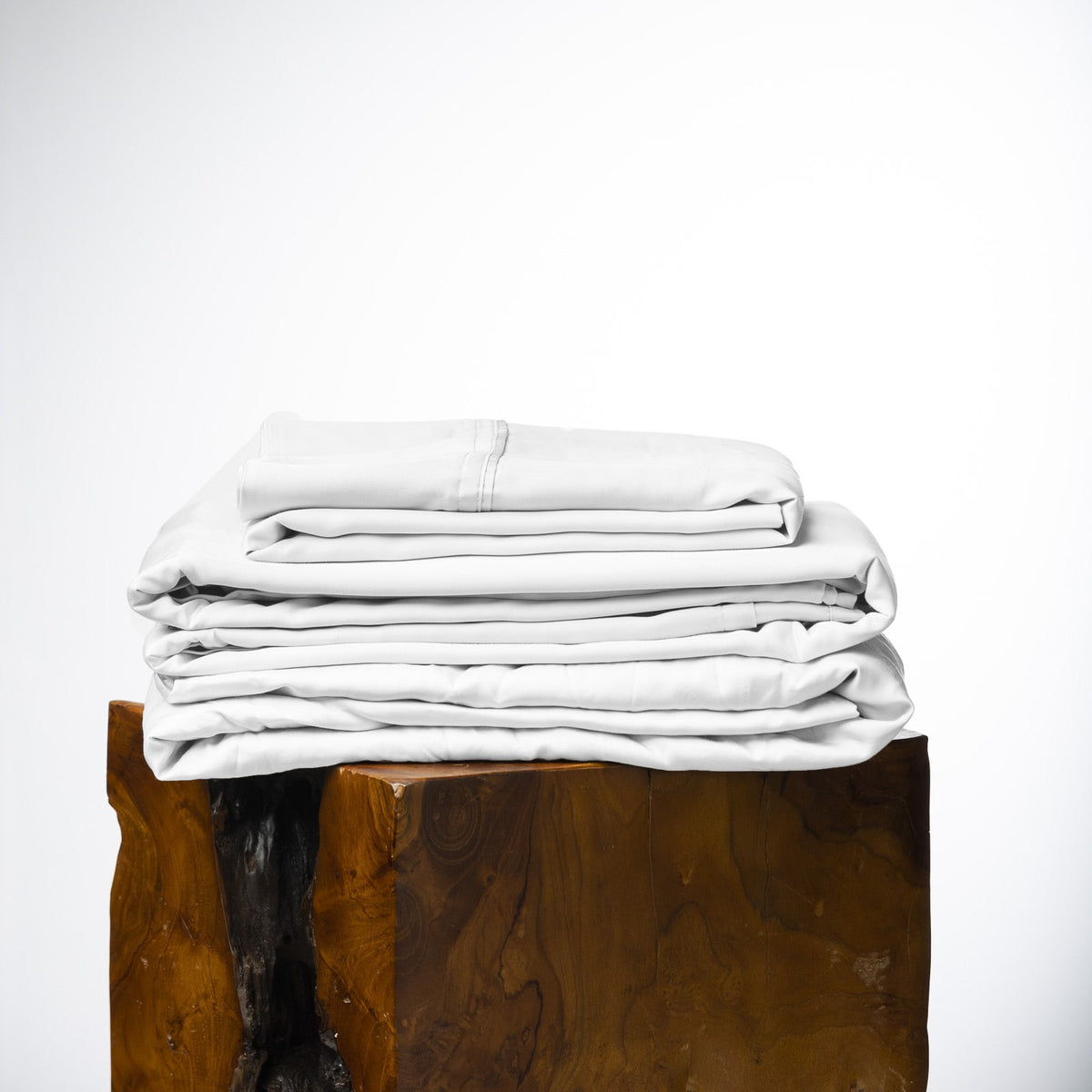
2 comments
Gardena
Hello oliveandcrate.com webmaster, Keep it up!
Hello oliveandcrate.com webmaster, Keep it up!
Thomas Clarence
I like how you mentioned that avoiding too much sun exposure can help you stay cool at night. In addition to that, I would think that it would be a good idea to have tint installed on the windows of your home. I would think that tinted windows would prevent your home from absorbing too much sunlight. https://www.premierqualitywindows.com/windows
I like how you mentioned that avoiding too much sun exposure can help you stay cool at night. In addition to that, I would think that it would be a good idea to have tint installed on the windows of your home. I would think that tinted windows would prevent your home from absorbing too much sunlight. https://www.premierqualitywindows.com/windows